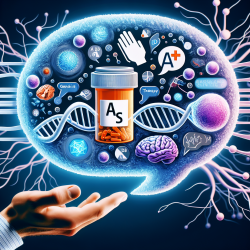Concussions are a significant concern in sports, especially for university athletes. Mismanaged concussions can lead to severe long-term consequences, both physically and mentally. A recent study, Development of a tailored concussion education program for athletes: a pragmatic multimethods design and integrated knowledge translation approach from needs assessment to design, sheds light on creating effective concussion education programs. Here's how practitioners can leverage these insights to improve their skills and better support their athletes.
Understanding the Needs
The study began with a comprehensive needs assessment, involving university representatives and athletes. Key findings highlighted the importance of addressing topics such as:
- What is a concussion?
- How to recognize a concussion
- How to report a concussion
Athletes also emphasized the need for understanding symptom recognition and the effects of concussions on the brain.
Effective Education Strategies
Based on the needs assessment, the researchers developed a concussion education tool using evidence-based behaviour change techniques. Here are some strategies that practitioners can implement:
- Interactive Learning: Utilize videos, flip cards, and scenarios to engage athletes.
- Behavioural Goals: Focus on reporting symptoms, seeking care, encouraging teammates to report, and supporting teammates through recovery.
- Problem-Solving Scenarios: Incorporate scenarios that help athletes navigate barriers to reporting concussions.
Maximizing Engagement
The final resource was designed to be engaging and accessible. Athletes preferred learning via computer and alone, so the tool was made available online and self-paced. Ensuring the material is concise and interactive helps maintain athlete engagement and facilitates better learning outcomes.
Implementing the Tool
For practitioners looking to improve their concussion management programs, consider the following steps:
- Conduct a Needs Assessment: Understand the specific needs and preferences of your athletes.
- Develop Engaging Content: Use interactive elements and real-life scenarios to make the learning experience impactful.
- Focus on Behaviour Change: Incorporate strategies that promote reporting and seeking care for concussions.
By integrating these strategies, practitioners can create more effective concussion education programs that not only increase knowledge but also encourage positive behavioural changes among athletes.
To read the original research paper, please follow this link: Development of a tailored concussion education program for athletes: a pragmatic multimethods design and integrated knowledge translation approach from needs assessment to design.










